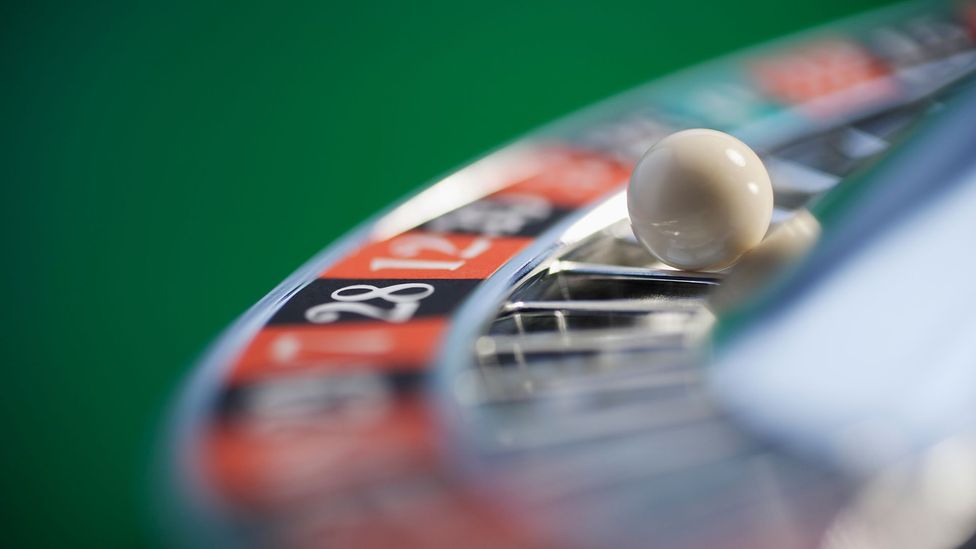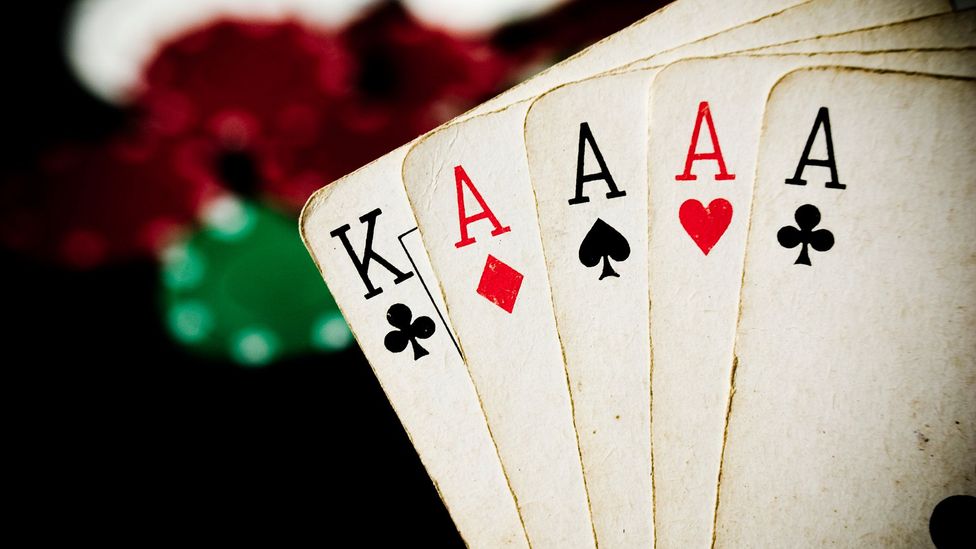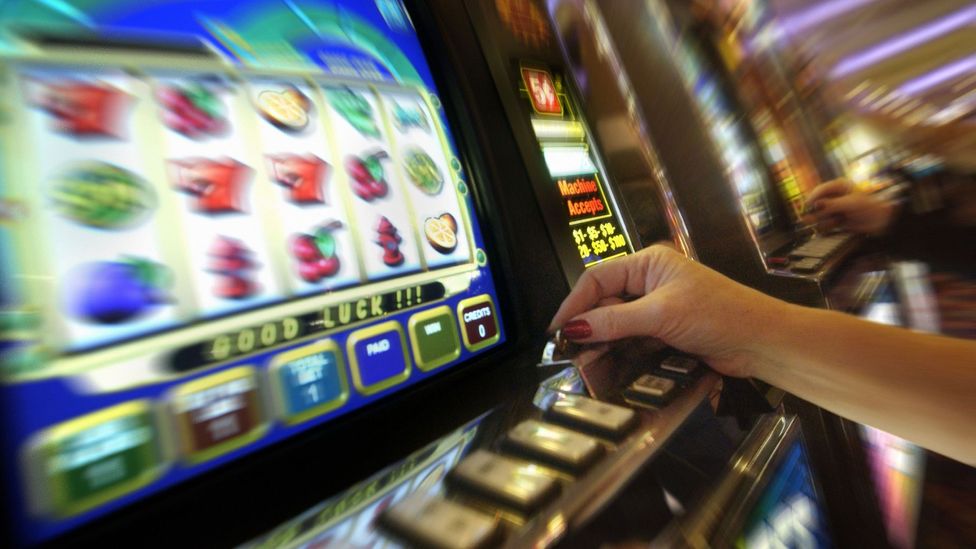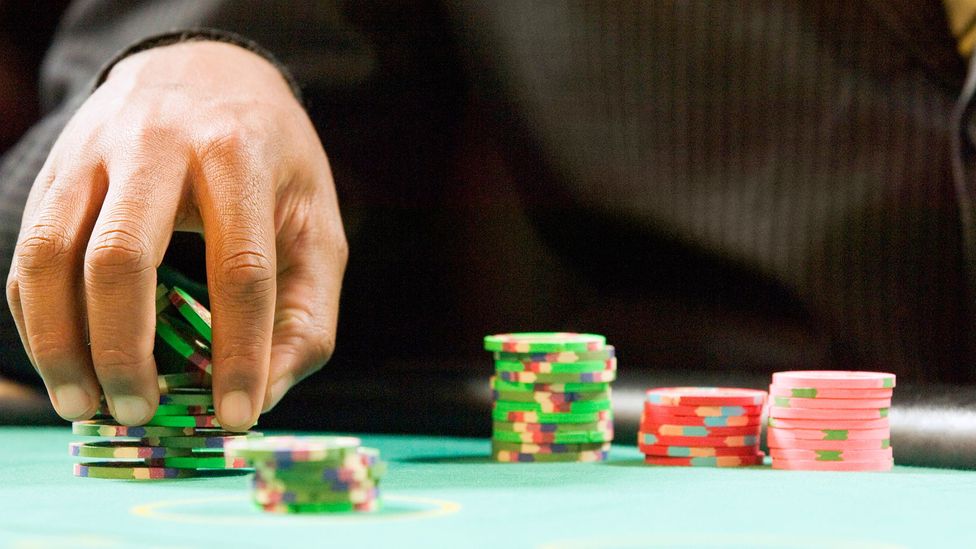This What It Feels Like to Have a Winning Streak Baby
Why gamblers go high even when they lose
(Image credit:
Getty Images
)

Y'all might think gambling is all most winning, simply a range of studies testify that things just aren't that unproblematic. Why do gamblers, fifty-fifty unsuccessful ones, keep getting a buzz?
N
No one likes to lose – even pathological gamblers. And still they keep on betting. If the firm always wins, why curl the dice again? People addicted to gambling frequently written report that, despite losses stacking up, the buzz keeps bringing them dorsum to the card table or slot machine.
"I wanted to chance all the time," one old addict recalled to Scientific American in 2013. "I loved it — I loved that high I felt."
And recently, ane Wall Street executive admitted defrauding family, friends and others out of $100 million to feed his habit.
"It was just a mode for me to get money to feed a gambling addiction," he told the court.

The act of gambling may be as crucial to the fizz as the winning (Credit: Getty Images)
Only if someone is ultimately losing money – perhaps fifty-fifty losing their chore or house as a consequence of nursing their addiction – how can that high mayhap outweigh the sacrifices?
The first thing to annotation is that people don't only gamble for the prospect of winning. Mark Griffiths, a psychologist at Nottingham Trent University who specialises in behavioural addictions points out that gamblers list a wide range of motivations for their habit.
In a survey of v,500 gamblers, the prospect of the take chances to "win big coin" was the strongest factor. Just information technology was followed closely by "because it's fun" and "because information technology'south exciting".
"Fifty-fifty when you're losing while you're gambling, your torso is all the same producing adrenalin and endorphins," he says.
"People are buying entertainment."
This is backed up by a 2009 study by researchers from the University of Stanford in California, who found that effectually 92% of people had "loss thresholds" below which they would not get. Notwithstanding, the fact that they lost coin overall after visiting a casino, for example, did non necessarily bear on their overall enjoyment of the experience.

The buzz of a win may be even more after a long losing streak (Credit: Getty Images)
"People seem to be satisfied with relatively pocket-sized wins, and will tolerate even smaller losses," said co-writer Sridhar Narayanan at the time. "They tend to be conscious that, in the long run, they are more likely to lose than win."
And losing could actually, momentarily at least, boost the positive response to a win. This is considering of how gamblers' expectations of winning change during a losing streak.
Robb Rutledge, a neuroscientist at University Higher, London, and his colleagues performed an experiment with 26 subjects whose brains were scanned while they made a series of selections, each of which could upshot in either a certain outcome or an uncertain one – a take a chance. Participants were likewise asked to rate their sense of happiness afterward every second or tertiary go. Plus, a similar experiment – without the brain scanning – was carried out by over 18,000 participants via a smartphone app, The Great Brain Experiment.
Among various interesting findings, the squad discovered that when participants had a lower expectation that they would win, their response to winning equal rewards was elevated. This was evidenced both by subjects' own reporting of how happy they felt and the data from the fMRI scans. These scans revealed increased activity in an expanse of the encephalon associated with dopamine neurons. Dopamine, a complex neurotransmitter, could in this case be linked to changes in emotional state.
"If people lose a bunch and that lowers their expectations, that will increment how happy they are when they finally do win," says Rutledge.
This lonely is tantalising.
"If a couple of bad things in a row happen to you and your expectations become down – but then you actually get some good outcomes, yous'll probably be happier," he explains.

Some machines may be designed to actively entice united states to take a chance with the very colours they use (Credit: Getty Images)
"Though you should probably walk away at that bespeak."
But are devices like gambling machines actively manipulative as well? Griffiths has written about the cues that electronic gaming machines give to players. Much is even so unknown about how their design impacts player behaviour, just, for case, many machines and casinos apply ruby-red and similar colours – considered more arousing. Then there is the role of sound. Griffiths wonders whether the taunts of a common machine referencing The Simpsons has an combative result on players.
When a role player loses, for instance, the graphic symbol Mr Smithers might declare, "Yous're fired!"
"In line with hypotheses supporting frustration theory and cognitive regret, this might make the electronic gaming machine more enticing," writes Griffiths in one paper.
One central factor in how addictive any kind of gambling might be is how frequently players can identify bets. Because the availability of opportunities to hazard is linked with the level of trouble gambling in a given community, Griffiths argues that information technology is the number of potential rewards – not actual rewards or even the type of betting – that drives pathological gamblers.
Games and machines are also oft designed to go on players interested by offering substitute rewards, similar additional credit or – later on a loss – the possibility of winning bigger than usual next time.
"If yous build in lots of piffling rewards that are not necessarily financial information technology will keep people responding," says Griffiths

The procedure of betting may be the most powerful draw after all… (Credit: Getty Images)
And, interestingly, there are cases in which gamblers might try to develop a "pseudo-skill" as a sort of justification for targeting those potential rewards. Griffiths gives the example of Britain gaming machines which are designed with adaptive logic that means they might pay out more than they accept from customers during a sure menstruation, after which they volition revert to a less generous system. This means that some players try to seek out (or "skim") machines which accept been belongings dorsum jackpots, in the promise of being there when the tide turns.
All of this contributes to the idea that much of gambling isn't about winning at all. Information technology's nigh the process of betting itself – and all the attendant factors that make that enjoyable. While pathological gambling can't be explained so simply – there are ofttimes many reasons why an addiction might develop in a person – it's certainly interesting to explore how the excitement of a flutter might be tied to the mode and structure of any game is being played.
And fifty-fifty when information technology'southward non a problematic obsession, gambling notwithstanding seems to entertain those who go home with empty pockets. Should yous put it all on red or black? Well, possibly it doesn't affair.
Join 600,000+ Future fans by liking united states of america on Facebook , or follow us on Twitter , Google+ , LinkedIn and Instagram
If you liked this story, sign up for the weekly bbc.com features newsletter , called " If You Only Read 6 Things This Week ". A handpicked selection of stories from BBC Future, Earth, Culture, Capital, Travel and Autos, delivered to your inbox every Friday.
Source: https://www.bbc.com/future/article/20160721-the-buzz-that-keeps-people-gambling
0 Response to "This What It Feels Like to Have a Winning Streak Baby"
Post a Comment